Hunting and Fishing News & Blog Articles
25 Must-Haves For Full-Time RV Living
Facebook Twitter Pinterest LinkedIn
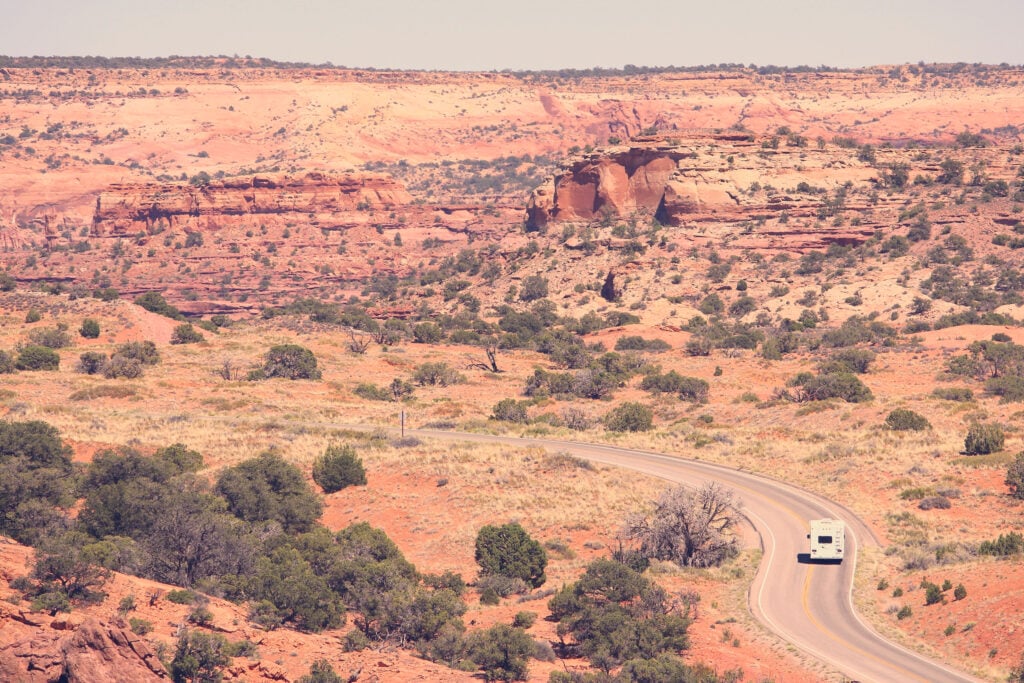
You’ll want to keep these full-time RV living essentials on hand. Photo: Shutterstock
Once you decide to hit the road full-time, you’ll want to consider all the items you’ll need for RV living. Having the right tools, home items, and accessories with you can make all the difference between misery and comfort. Especially if you like to boondock or are in the middle of nowhere.
Everyone’s RV camping style is different. But most people will find this list of full-time RV living accessories helpful for both short and long road trip adventures.
1. Spare parts
Driving your RV down the road is the same thing as experiencing an earthquake inside your home. Expect parts to degrade or break over time and keep those spare parts available—especially for things you use the most. If you are looking for parts at the last minute, you may find them hard to get or on back order.
Focus on the parts that would be most important to you should something go wrong, as well as items that are harder to source locally. Also aim for small and lightweight replacement parts that are easy to store and transport.
Take time to examine your rig and consider the things that might break down or are more susceptible to road damage, and determine if carrying extras might save you a lot of time. Some must-have parts for full-time RV living include furnace parts, assorted nuts, bolts, screws, washers, varied sizes of hose clamps, and extra lug nuts for both your rig and tow/towed vehicle.
2. Fuel
If you carry a generator or outdoor toys like motorcycles or ATVs, plan to carry additional fuel. A five-gallon gas can may be very useful. An extra propane filled tank is good if you RV with outdoor grills and griddles or expect cold weather!
3. Tools
At a minimum, you will want a multi-bit screwdriver (be sure to have a square bit, too!), pliers, a Crescent wrench, and a hammer. Being able to fix something yourself quickly can keep your schedule on target. If you are comfortable diagnosing electrical problems, be sure to carry an AC/DC voltmeter.
4. Maintenance products
All RVs have seals and something that squeaks. Seal lube, slide lubes, and various kinds of tape for maintenance are great to have on hand in the RV.
When possible, use silicone-based lubrication instead of petroleum-based lubricants. These products tend to gather and collect far less dust and dirt. Consider carrying additional water filters and sewage treatment packs.
Make sure you keep track of all your RV maintenance and repairs with an online tool such as RV LIFE Maintenance. Not only can you keep all of your documents in one place, but you’ll also receive timely reminders when maintenance is due to help you avoid costly repairs and potentially serious accidents.
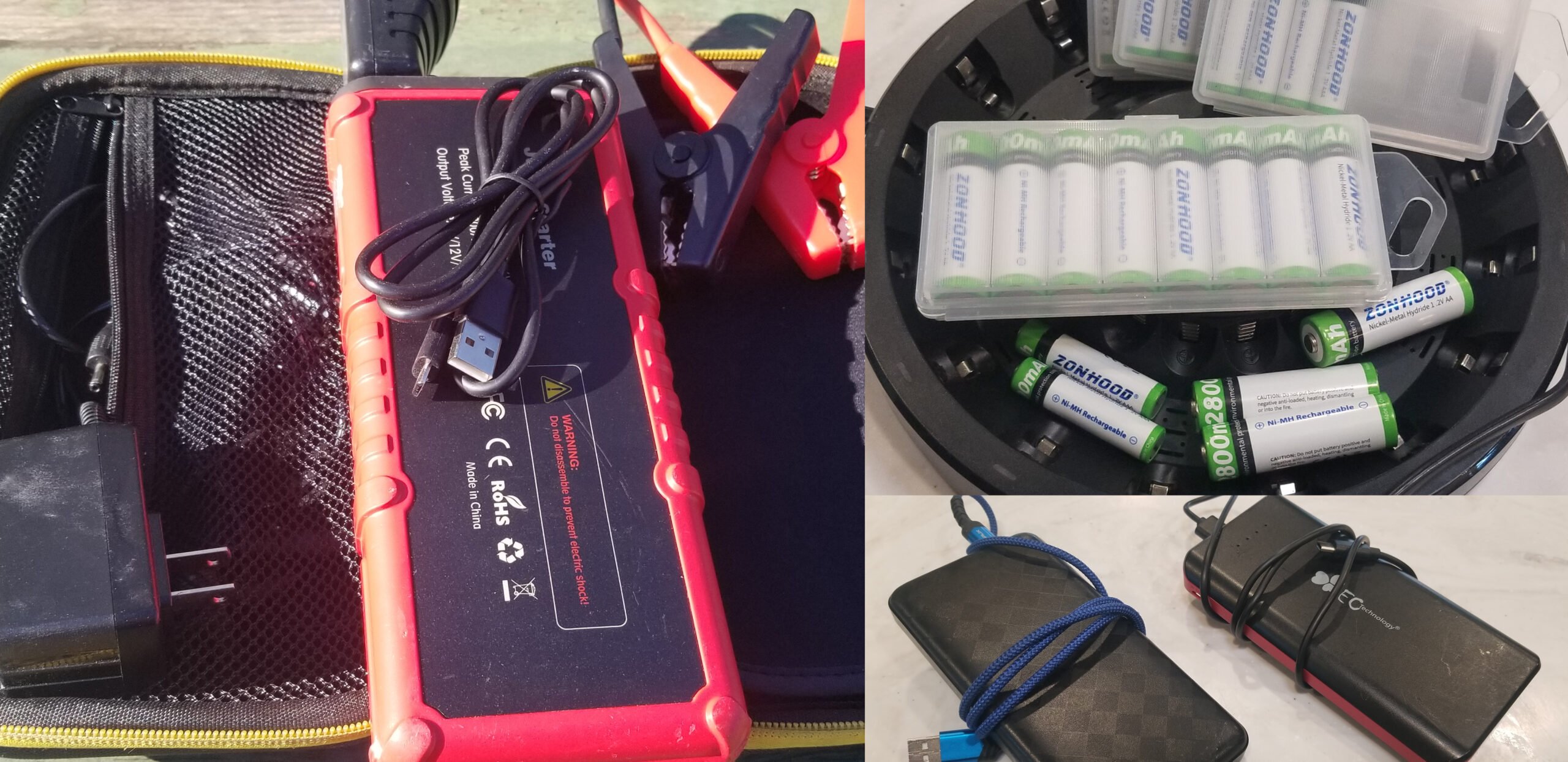
Basic tools we like to keep on hand: USB battery packs, a battery jump kit, rechargeable batteries, and charging station.
5. Batteries
Having USB battery packs on hand can be mighty useful when you need to keep devices charged or even to jump start a vehicle! Older rigs do not have DC-powered USB plugs sprinkled throughout. You will need AC to power that charger plug, which might not be available while boondocking or during a power outage.
Consider using rechargeable AA and AAA batteries too. There are also USB battery packs that hold a much larger charge. They can even be used to jump the largest of automotive batteries.
6. Fresh water and food
When parked, you can just run out to a local grocery store to fetch these items. But what happens if you are stuck beside the road overnight? Fresh bottles of water and some ready-made foods are good to keep on hand if you RV full-time.
7. Water and sewer hoses
Whether you prefer campgrounds or boondocking, you’ll need to empty those holding tanks at some point. Have the appropriate sewer hoses to drain your wastewater properly and legally.
Having a sufficient water hose is also important for refilling your freshwater tank. Plus, being able to expand the hose length in some parks will be important.
8. Shore power cable and adapters
Unless you are a 100% boondocker, you’ll want to connect to shore power at some point. Obtaining a high-quality power cable ensures that can happen.
Remember: the available connection could be a 15-, 20-, 30- or 50-amp source. Ensure you have the appropriate adapters (or “dog bones”) to enable a connection between your rig and the power source available.
9. Pedestal surge protector
There are misconfigured power pedestals at campgrounds. Protecting all your appliances and laptops is important! Different RV surge protectors vary in cost, protection rating, and other features.
Never plug up to shore power without a surge protector to protect your RV. The cost is far less expensive than replacing your microwave, TVs, air conditioners, etc.
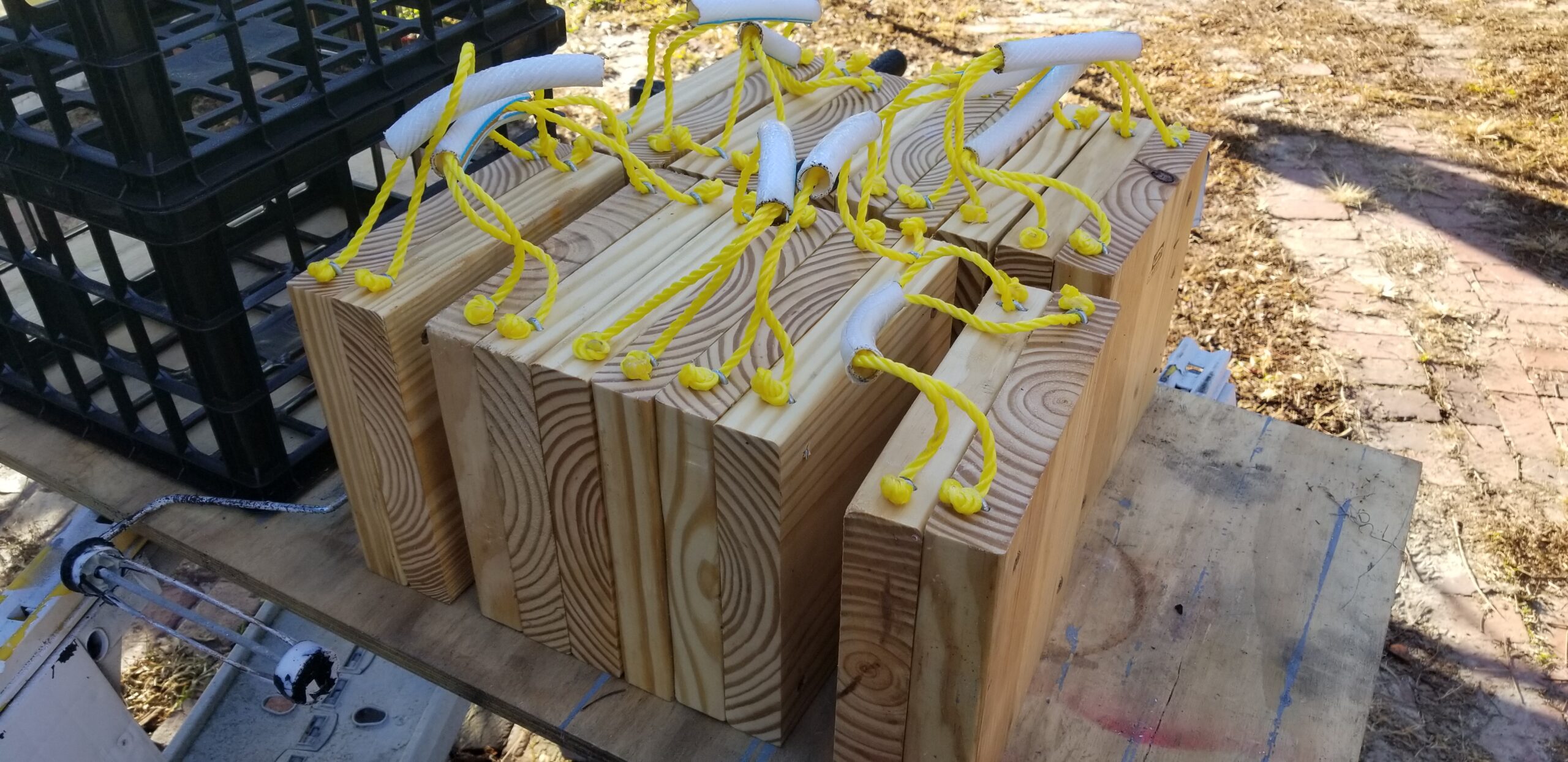
We made our own homemade leveling jack pads with all-weather handles—easy to pull up from the mud!
10. Jack pads and wheel chocks
Not all camping spots are created equally—or level! Whether you have automatic or manual leveling jacks on your rig, being able to reduce the amount of required lift for your jack legs can change a wobbly rig into one that’s more stable.
In addition, sometimes the ground is soft or soggy, and increasing the size of the footprint can prevent your rig from sinking during a long stay. You can purchase premade pads or make your own! Having wheel chocks will also minimize movement and potential rolling of your rig.
11. Maps and apps
Using apps and websites can help get you to your destination safely. You’ll want to find the right campground for you and your traveling partners, and you may need to find dump stations along your route. And the heavier and taller your rig is, the more you will need to plan your path. Not all bridges are rated for a 20,000 pound or 13’6” high rig!
For all of your camping and trip planning needs, look no further than RV LIFE Campground Reviews and RV LIFE Trip Wizard. Campground Reviews is a trusted source of campground and RV park reviews offered by camping and RV enthusiasts just like you. With its accompanying RV LIFE App, RV Trip Wizard gets you to your camping destinations utilizing RV-friendly routes specific to your RV and travel preferences.
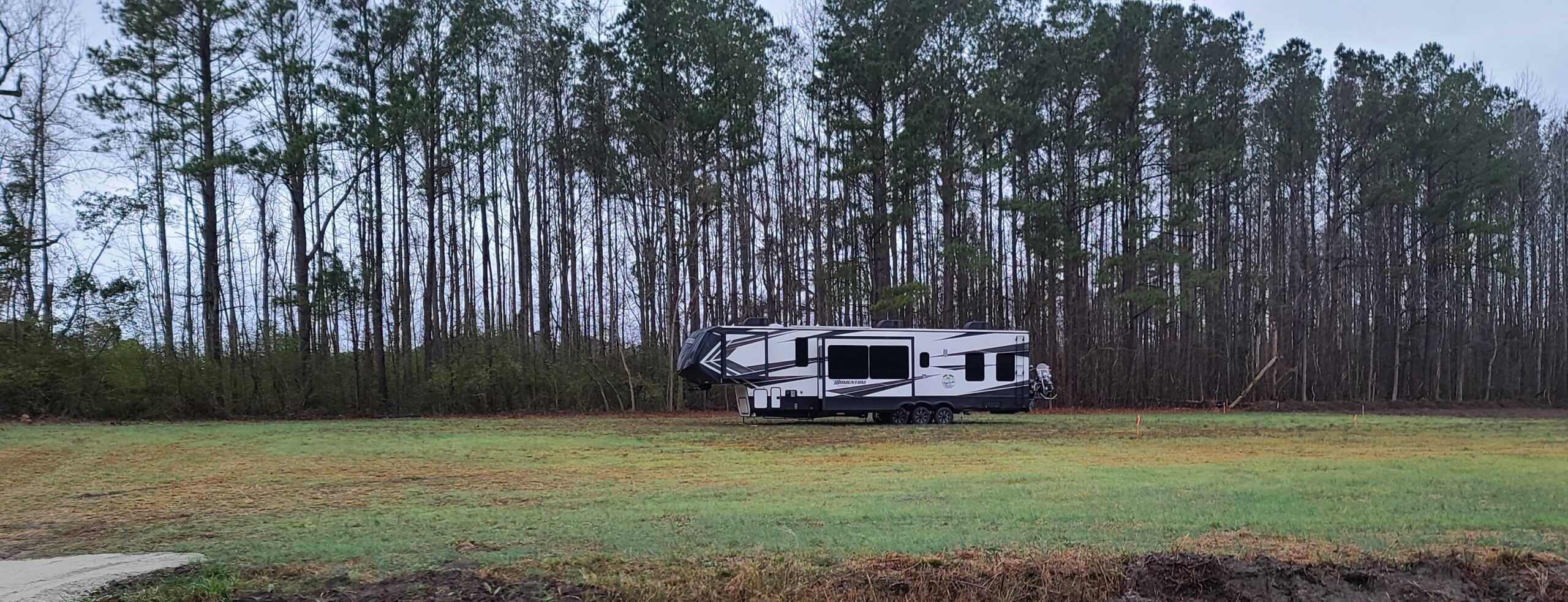
Your needs will vary. Image by L. Belden.
12. All-weather clothing
Unless you’re parking permanently in the Florida Keys, traveling to different parts of the country means encountering a variety of weather. Having ample clothing means being prudent about layering, as RV space is limited.
13. Dishes and cookware
Hopefully you don’t plan to live on TV dinners and takeout! Part of the benefit of full-time RVing is the ability to save money and cook at home. Look for durable but lightweight dishware like Corelle.
14. Comfortable bedding and linens
The main benefit of full-time RVing is having your home with you. Having good fitting sheets, comfortable pillows, and warm blankets is an important part of being in your rig. A good RV mattress should be a part of your must-haves, just like in your brick-and-mortar home.
15. Water pressure regulator
RV water lines are susceptible to pressure overloads that can cause leaks long term, if not immediately. Purchase a pressure regulator to put between all water spigots and your rig.
Contact your manufacturer for the maximum pressure your lines are rated for, and ensure that the regulator, if adjustable, is set below that threshold. No one wants a leak in the underbelly of their rig!
16. Camping memberships
Do your research. There are many organizations you can join as a full-time RVer. We suggest selecting only a handful. Too many and you can’t fully utilize the services offered, and it can be heavy on the pocketbook.
Passport America offers up to 50% off camping rates at participating locations. Harvest Hosts is another great resource for one-night stays across the US at wineries, breweries, farms, museums, and more.
17. Emergency supplies
Never travel without one or more easily accessible fire extinguishers. Know where to keep them and how to use them in case of an emergency. Accidents happen! Be sure to keep an emergency medical kit in your rig and make sure it is accessible.
18. Vehicle insurance
For drivable vehicles, all states in the US require liability insurance at a minimum. Because you are taking your home with you, talk to your insurance agent about the best policies to fit your lifestyle, budget, and financial situation. Note that not all insurers will cover full-time RV living. Make sure your policy does or find one that will.
19. Medical insurance
If you aren’t yet retired and have government-provided assistance, talk with your financial planner to ensure you have good medical coverage in case of catastrophic needs while on the road. Not all plans cover you in all states, but most have out-of-network exceptions.
You can start with policy shopping from an online provider like RVerInsurance.com. RVer Insurance Exchange offers free quotes for RV insurance, health insurance, even extended warranties.
20. Internet access
Whether you are retired or planning to work from the road, most RVers need internet access. There are cell phone plans, satellite offerings, and more to keep you connected. You can have a simple connection or several mobile hotspot plans, depending on your particular needs.
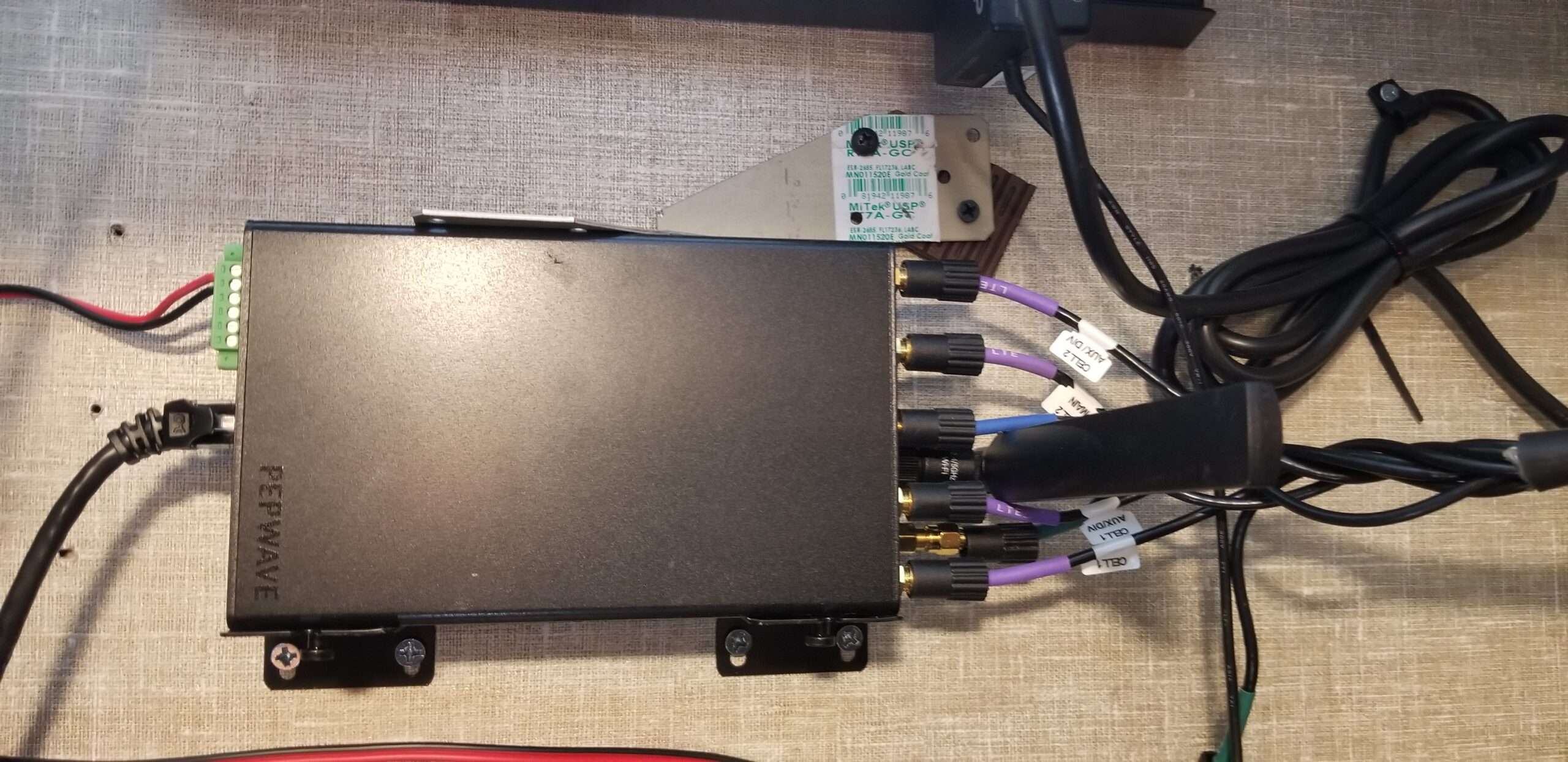
We used this advanced cell-based Internet router installation.
21. Medical records
You should be able to digitally access all your medical records and lists of medications. Don’t forget about your pets too. Most campgrounds require that pets have their shots up-to-date and may require proof of vaccinations.
22. Resilience and a positive attitude
When you are full-time RVing, your everyday activities, your work requirements (even being retired has appointments), your home, and your vehicle are now all tied together. When one goes down, the others are stalled. Once you realize this, you can approach any issues head-on and be better prepared.
23. Domicile and mail service
You will be required to establish a domicile and a permanent address where you can receive mail. There are lots of services out there, but you need to select one. The top states for establishing your domicile are Texas, Florida, and South Dakota due to taxes. Get all this set up before you start on your journey.
24. Spare tires
While it’s great to have a roadside service contract, they will very rarely have the replacement tire you need or be able to deliver it in a timely fashion. Most RVs have a designated space to keep a spare tire, so use it!
At least you will have the spare tire on hand for a mobile service if you can’t or do not want to change it. Also ensure you have a jack, tire tool, and a way to air up your tires.
25. Community
You can access many RV forum communities online. These sites are some of the greatest resources for full-time RV living. You can quickly join any of the forums and talk to all types of RVers. They can provide all kinds of support from fixing your rig to just getting together and making new friends.
Related articles:
The Dirty Truth Of Full Time RVingDo You Have What It Takes To RV Full-Time?
Facebook Twitter Pinterest LinkedIn
The post 25 Must-Haves For Full-Time RV Living appeared first on RV LIFE.
